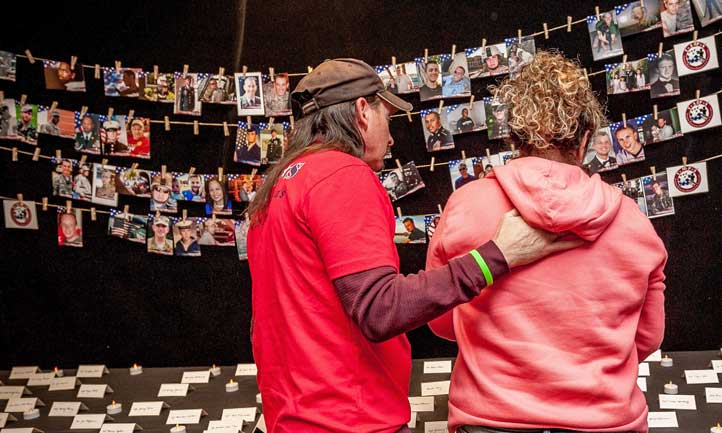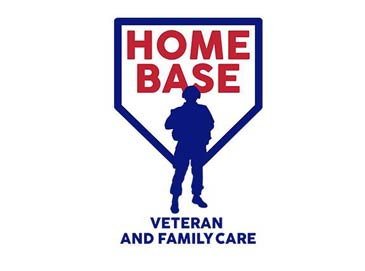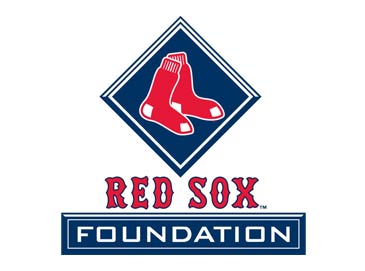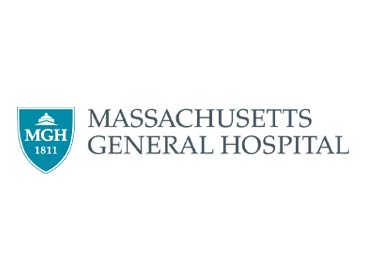Healing Trauma in Military Survivors
Author: Carla Stumpf Patton
June is PTSD Awareness month
June is awareness month for PTSD (Posttraumatic Stress Disorder), making it critical to talk openly to create the understanding and encouragement needed to seek care and treatment.
Trauma can be experienced in people of all ages and demographics, resulting from various life events such as: natural disasters, accidents, crime, war, medical or life-threatening emergencies, violence, or the death of a loved one. Trauma can emerge or evolve into emotional and physical responses as a result of the exposure to extreme, unexpected, and/or horrifying circumstances. The extent as to how one may respond to these incidents is unique to each individual or situation.
 Photo: TAPS Archives
Photo: TAPS Archives
As a leader in addressing traumatic loss, as with military suicide deaths among Service Members, Veterans, and their Families (SMVF), TAPS found that the related trauma is often a key factor that, when not treated, can complicate the grief journey or lead to other risk factors. The TAPS Suicide Postvention ModelTM was developed to stabilize key issues, support the grieving process, and provide opportunities for post-traumatic growth. Through this trauma-focused work, partnerships with organizations like Home Base help to promote healing by providing clinical care combined with peer-based support.
What is Home Base?
Home Base is a Red Sox Foundation and Massachusetts General Hospital program dedicated to healing trauma and “invisible wounds” experienced by veterans, service members, and their families through world-class, life-saving, clinical care. Home Base describes the program as “a two-week outpatient program that treats co-occurring PTSD, Prolonged Grief Disorder, and depression. The two-week Intensive Clinical Program for Families of the Fallen (ICPFF) provides 63 hours of treatment and starts these survivor family members on a path of recovery from their grief and re-connection to themselves and to hope.”
Upon application and acceptance into the program, participants attend with a small cohort of approximately 10-12 peer survivors and engage in activities such as individual and group therapy; stress reduction and resiliency; fitness and nutrition; integrative therapy such as yoga, art, tai chi, and equine therapy; and evening and weekend activities to strengthen peer connections and bonds.



TAPS and Home Base Partnership
The TAPS/Home Base partnership is aimed at stabilizing trauma-related issues in order to create a foundation for grief and growth. As of Summer 2022, there have been 14 TAPS cohorts with over 100 TAPS bereaved survivors receiving treatment. Among them were various relationships, including: surviving parents, siblings, and spouses and intimate partners.
As a testament to the power of the program, one TAPS Home Base graduate shared:
“The last two weeks were some of the most difficult days, ripping off all of the band aids to every emotion I pushed far away in order to survive. I am forever grateful to Home Base and to TAPS for the life-changing opportunity. I know there will be good days and bad days. I know that it's okay. I know I am NOT broken. I am relieved to know I am not alone...to have found a group of amazing (survivors) spouses who have lived similar experiences.”
 TAPS and Home Base Challenge Coins
TAPS and Home Base Challenge Coins
Thanks to Home Base and generous funding from donors, the two-week program is offered free of charge to TAPS suicide loss survivors and includes travel, lodging, meals, and program treatment fees.
TAPS is honored to support such initiatives and programs that work every day to uphold the life-saving message that help is available, treatment works, and healing, growth and hope are all possible.
To learn more about the Intensive Clinical Program for Families of the Fallen provided by Home Base Programs, please visit Home Base Veteran and Family Care website or email info@taps.org.
For those in need of support who may not need such an intensive treatment program, TAPS has a Community-Based Care team who can offer referrals for trauma-informed therapy. You can request their support at 800.959.8277 (TAPS) or via email at info@taps.org.
Carla Stumpf Patton, EDD, LMHC, NCC, FT, CCTP, is the TAPS Senior Director, Suicide Prevention & Postvention and the surviving spouse of U.S. Marine Corps Sergeant Richard E. Stumpf, Jr..
